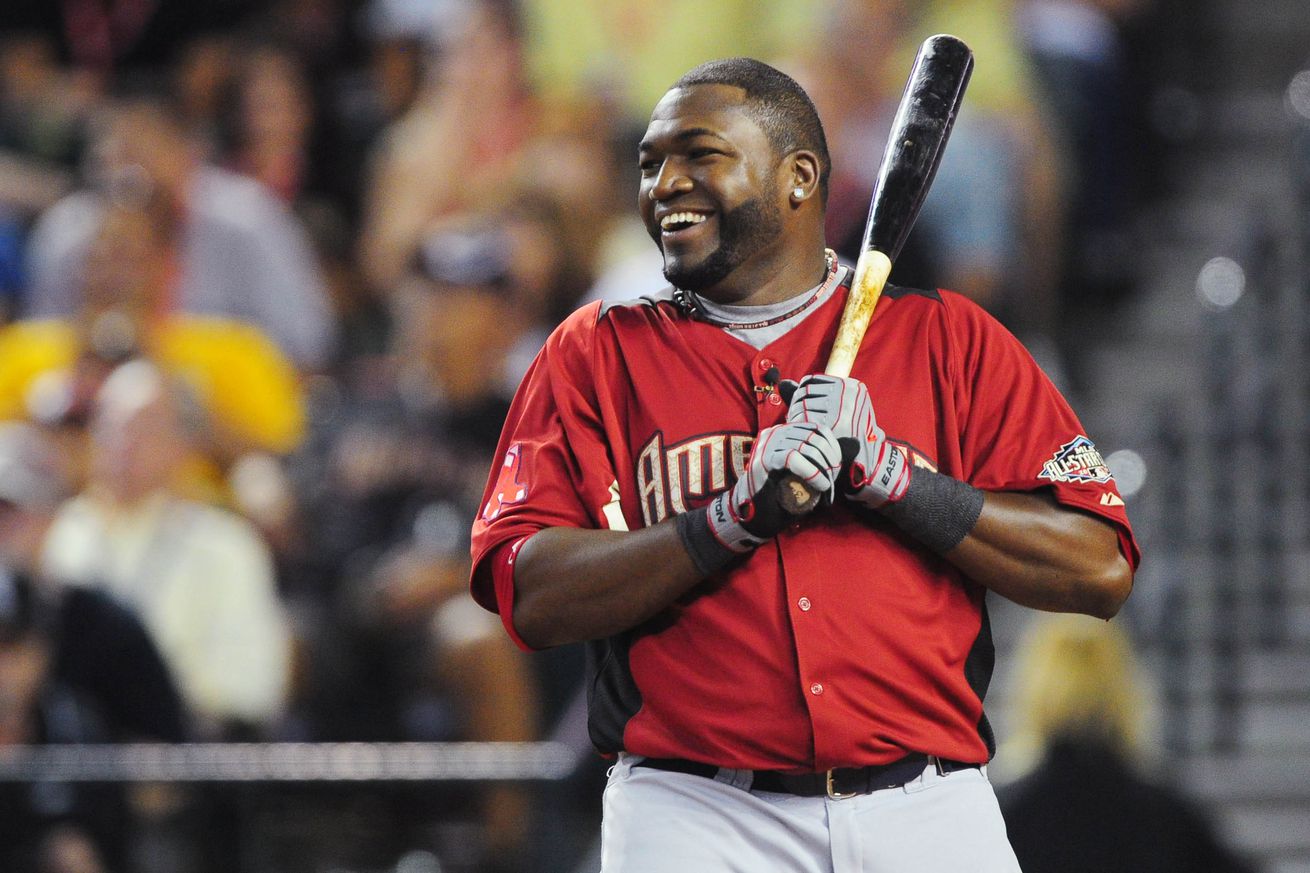
Another rousing edition of our favorite pastime: naming random guys!
Happy Derby day, folks. In just a few hours, some of the league’s top sluggers will be launching spheres of cowhide deep into the Atlanta sky at an alarming rate.
The Home Run Derby tonight got us thinking: what random Red Sox players at the peak of their powers—past or present—would we like to see step into the box for this contest? No David Ortiz, Ted Williams, or Manny Ramirez selections; that’s too easy. We want to dive deep, and we’d love to read who you would pick in the comment section below. Batter up.
Wily Mo Peña
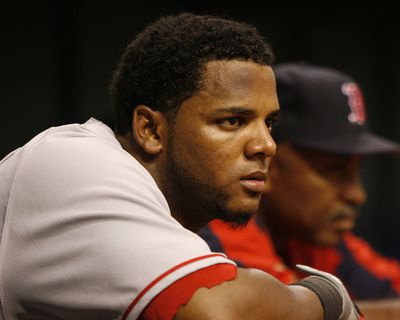
Photo by J. Meric/Getty Images
I mean, who else would you expect me to pick?
Gotta be honest: part of this exercise is just an excuse for me to bring Wily Mo back to your attention. A Home Run Derby would’ve suited his game perfectly. A competition based off of hitting batting practice meatballs? Had the game been designed off of that idea and that idea alone, Wily Mo would’ve been more like Willie Mays. He would’ve been the greatest athlete of all-time. I shake my fist at the man who woke up one day and decided to invent the curveball, thus developing Wily Mo’s kryptonite.
I mean, just watch this:
Or even better, this:
Wily Mo is my hero. In this alternative universe that we’re devising, he gets his flowers via a nod in our OTM HRD.
— Fitzy Mo Peña
Troy O’Leary
In 1999, O’Leary led the Red Sox with 28 regular-season home runs.
In June, he hit a 413-foot home run in Baltimore, right out of the park and onto Eutaw Street. The Orioles have a pretty cool tradition of commemorating each of these home run balls with a plaque embedded right in the pavement, in the exact spot where the ball landed. It’s an exclusive club—just six Sox players have earned membership, for seven total home runs (David Ortiz, naturally, did it twice because of course he did). Watch that ball get out of there:
Then, during Game 5 of the ALDS that year, with Cleveland up by two, they decided to walk Nomar in order to get to O’Leary. No matter that it loaded the bases; they liked their chances. (Though I’m not sure why, since he’d already whaled 28 in the regular season.) And damn, did he make them pay! He smacked the first pitch he saw 417 feet, claimed bragging rights for the first grand slam in Red Sox postseason history, and gave Boston the lead.
Later in the game, with the score tied up, Cleveland unbelievably did the same thing again: walked Nomar to get to O’Leary. History repeated itself, with O’Leary smacking the very first pitch over the right field fence again, scoring three runs this time. You have to go all the way back to Mrs. O’Leary’s cow in Chicago to find this much fire! Not to take anything away from Pedro Martinez, but O’Leary’s performance is a big part of why the Sox went on to the ALCS.
— Maura McGurk
Tris Speaker
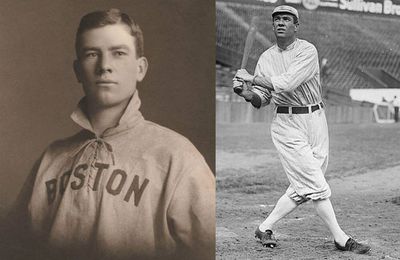
No one said the random player had to be living, right? (Ed. Note: No, but some someone did say it couldn’t be a star player, let alone one of the greatest of all time. But since almost no one in America still knows who Spoke is, we’ll allow it.) Over his 22 year career Speaker, an outfielder, hit .345/.428/.500 and slugged 117 home runs. I don’t care that most of those homers came before 1925 (or included a fair number of inside the park homers). If anything his experience hitting in the first part of the last century makes him the perfect guy to play in a Homer Run Derby! Heck, if the Red Sox existed before 1901 there’s probably someone from 1885 I’d take instead. Just lob it over to ol’Tris and he’ll do the rest.
— Mike Carlucci
2024 Tyler O’Neill
I’m usually one to moan about recency bias, but hear me out: the Canadian wonder, who’s had that ailing shoulder affect his playing time as a member of the Orioles, hit 31 home runs just last year for the Red Sox. He had the second-worst HR/RBI ratio since Rob Deer in 1992, behind Joey Gallo in 2017 (if we put an asterisk on Barry Bond’s historic 2001 season, that is). He only hit home runs with no men on. You can say that was a result of the Red Sox being pretty bad at getting on the basepaths last year, but think about this: there’s NEVER any men on the basepaths in the Home Run Derby!
And, lo and behold, he’s still doing the thing, just in a different uniform:
It’s a good thing they have a time limit, because he’d be up there all night. I know the Red Sox have a cluttered outfield already, but give me last year’s O’Neill on this team to wet the “no power hitters” pallet that feels so present sometimes.
– Dean Roussel
Matt Stairs
Matt Stairs hit his first career MLB home run with the Boston Red Sox in 1995. It was the only home run that he hit with Boston out of the 265 that he hit in his career, which is an absolute shame. Stairs took the best pre-game batting practice that I’ve ever seen in my life at Camden Yards in Baltimore, while playing for the Oakland A’s. He peppered one towering moonshot after another onto Eutaw Street, as I watched in awe as a middle schooler. Stairs’ greatest moment came at the age of 40, hitting one of those moonshots to win Game Four of the NLCS in 2008, and eventually winning his first ring with the Phillies.
Stairs never looked like anything more than a slow-pitch softball player, and yet he played until the age of 43, tallying 19 seasons in the big leagues for 12 different teams. It should have been for one team.
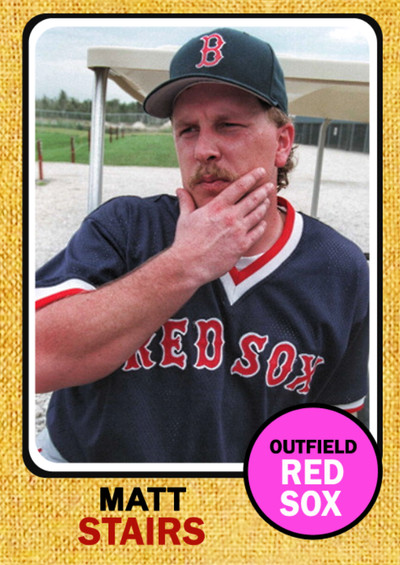
– Bob Osgood
Bobby Dalbec
In a 28-game stretch between August 13th and September 17th in 2021, Bobby Dalbec went deep twelve times and helped propel the Red Sox into their only postseason appearance this decade. He provided production when the team was starting to leak oil down the stretch, and was part of a group that did just enough to sneak into a Wild Card spot and go on a memorable run to the ALCS.
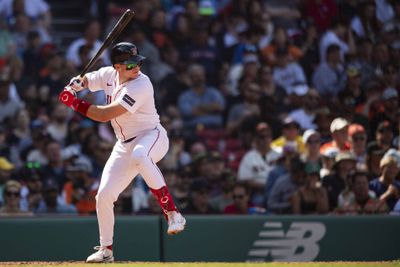
Photo by Billie Weiss/Boston Red Sox/Getty Images
Unfortunately, Dalbec’s production late that summer was much like the 2021 Red Sox post season run itself: Extremely fun for a short period of time, but a complete zero in being a harbinger of anything else good. Dalbec couldn’t adjust back to major league pitching once they adjusted to him, and his power proved ineffective in a major league setting over the long haul.
However, in a Home Run Derby setting? Now we’re talking! Dalbec wouldn’t have to worry about off-speed pitches, the sharp break of a slider, or the fastball changing levels. It would just be his raw power on display, which he’s used to hit 149 home runs in the minor leagues. He can his a baseball a mile, just not with any regularity against top notch major league arms, which in this event, he won’t need to worry about.
– Matt Gross
Darren Lewis and/or Jeff Frye
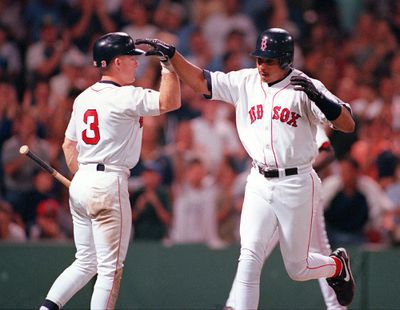
Photo by MediaNews Group/Boston Herald via Getty Images
On June 14, 1999, the Red Sox hosted the Twins. I know because I was there. Trailing by one run entering the bottom of the ninth, the Sox had slap hitters Darren Lewis and Jeff Frye due up. All they would do is hit back-to-back homers to win it, which is remarkable because they would combine for 3 on the season. I truly wonder if they (or their modern equivalents) would even manage 1 in the Derby, and would love to find out.
— Bryan Joiner
Franchy Cordero
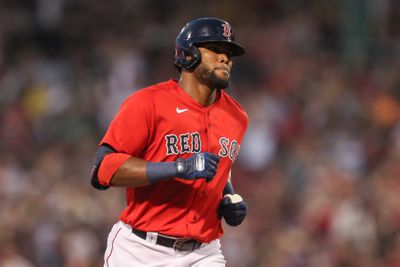
Paul Rutherford-Imagn Images
The current home run derby format rewards more than just pure power. With the timer aspect, athleticism is a significant part of the event. No offense to Prince Fielder, but he probably isn’t winning in today’s format. To win this year’s format, you need pull-side power and the stamina to complete all three rounds.
Enter Franchy Cordero, the guy who picked the wrong sport. Franchy was a freak athlete at 6’3”, 225 pounds. He had some of the best bat speed in the league. In 2023, he only took 15 swings, but his average bat speed ranked 5th in baseball. Flash back a few years before bat speed tracking was introduced, and his average sprint speed was in the 87th percentile. Franchy should have been an NFL wide receiver, but instead struggled with swing decisions and couldn’t be much more than a depth outfielder. He once hit a ball 489 feet. Give him a pitcher who isn’t trying to get him out, and he’d absolutely mash.
— Jacob Roy